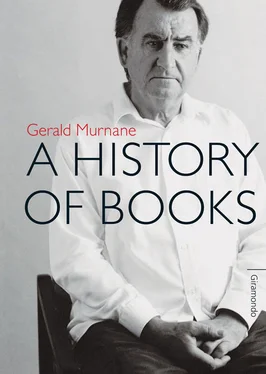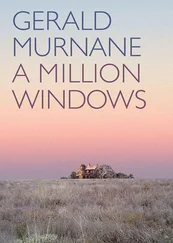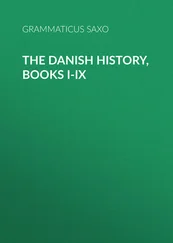While the man was reading the book mentioned above, he sometimes doubted that the author of the book could find among the coastal bays or the meadows above the cliffs or the treeless stony uplands or the glaciers often mentioned in the book scenery fit for the ending of a work of fiction that was profound or magnificent or sublime. The man then read to the end of the book.
Thirty years afterwards, the same man prepared to write a short passage about his experience as a reader of the last pages of the book mentioned or, rather, about his memories of that experience. The man intended to report that the words ice and sky , together with the words white and blue , had appeared often on the last pages; that the chief character had been reported as approaching the zone where the white and the blue seemed to meet or even to merge. Much else, of course, had been reported in the last pages, but the man remembered nothing of it.
For thirty years, the man preparing to write the short passage mentioned had wanted to write a work of fiction the ending of which would alert at least one reader to the feel of things in the way that he, the man, had been alerted by the ending of the book mentioned often above. If the man could not have written the work that he had wanted to write, then he would have been satisfied to write a work of fiction for which the only apt ending would have been a report of the effect on the man of his having read, thirty years before, that the chief character in a certain work of fiction had seemed to pass from sight in a place where the white seemed to meet, or even to merge, with the blue; where the land seemed to meet, or even to merge, with the sky, the visible with the invisible, the writer even with the reader, and whatever had been written with whatever had been read.
On the day before I began to write this piece of fiction, I received in the post two items from a man who was born when I was already eleven years of age. That man, whose name is not part of this piece of fiction, has the same urge that Vladimir Nabokov attributed to himself in the early pages of his book Speak, Memory : the urge to learn more and more about the years just before his conception and birth. The man often questions me about what I remember from the eleven years when I was alive and he was not. The man claims that what I tell him adds to the sum of what he knows about himself.
The first of the two items sent by the man was a clipping from a recent edition of a Melbourne newspaper that I do not read. The clipping consisted of a feature article and a reproduction of a photograph. The author of the feature article was, I supposed, a reader of the newspaper who had written the article and offered it for publication to make known the forthcoming celebration of the fiftieth anniversary of the founding, in the year when I became eleven years of age and the sender of the clipping was born, of a communal settlement in a remote district of south-eastern Victoria by a group of Catholic persons who wanted to live self-sufficiently and to bring up their children far from what they, the Catholic persons, considered a corrupt civilisation. The photograph reproduced as an illustration for the article showed about forty persons of all ages and both sexes. The persons seemed to be part of an audience in a hall and to be waiting eagerly to be addressed by someone who had inspired them in the past and was about to do so again.
The second of the two items sent by the man was a note from him to me. In the note, the man told me that he still recalled from time to time a certain few pages in an early book of fiction of mine. In those pages, the chief character of the fiction was reported as having visited, at some time in the early 1950s, a place called Mary’s Mount in the Otway Ranges, in southwestern Victoria. The place was a communal settlement founded by a group of Catholic persons, and the chief character found everything about the place inspiring. The man told me further that he had sometimes wondered whether or not this passage of fiction had been based of an actual experience of mine. Now, the man told me, he believed he had discovered the original, as he called it, of the place in the Otway Ranges of my fiction. He had been struck, wrote the man, by the similarity between the name of the place in my fiction and the name of the place in the feature article. He concluded, so the man wrote, that I had varied the name slightly and had moved the place, as he put it, to the opposite side of the state of Victoria.
Within an hour after I had read what the man had written, I had begun to make notes and to write the first draft of this piece of fiction. Then, although I understood that the man who had sent me the newspaper clipping might be only a minor character in this piece of fiction, I found myself making notes about him for including in the fiction.
Since the previous sentence is part of a piece of fiction, the reader will hardly need to be reminded that the man mentioned in that sentence and in earlier sentences is a character in a work of fiction and that the newspaper clipping and the note mentioned in some of those sentences are likewise items in a piece of fiction.
While I made the notes mentioned above, I first noted that the man is himself the author of published pieces of fiction. I noted this in order to remind myself of the only conversation that the man and I had had about the writing of fiction. During that conversation, the man and I had agreed that the chief benefit to be got from the writing of a piece of fiction was that the writer of the fiction discovered at least once during the writing of the fiction a connection between two or more images that had been for long in his mind but had never seemed in any way connected.
I noted further, in my notes for my piece of fiction, that the man in question had at one time begun but had soon afterwards given up a course for the degree of Bachelor of Laws in a university and had often afterwards made remarks that caused me to suppose he held in contempt the persons who are sometimes called collectively the legal profession.
I noted further in the notes that later became part of this piece of fiction that the man who is now a character in this piece of fiction had become, when he was a young man, the owner of a guitar and that he had played his guitar often since then. The man owned many books of music for the guitar and many books about famous players of the guitar and many recordings of guitar music. The man had sometimes played his guitar in my hearing, although I had told him politely when I had first seen his guitar that I consider myself a musical person but that I have never been inspired by any sound of strings being plucked or otherwise handled.
I noted further in my notes that the man had at one time taken a course of lessons in the Spanish language and had told me at the time that he found the sound of the language inspiring. When I was making that note, I recalled for the first time in many years that I had spent more than a few hours at the age of eleven in looking through a newspaper printed in the Spanish language.
Towards the end of my notes, I noted that I had sometimes admired the subject of the notes as a result of my suspecting that he had been connected sexually with many more women than I had been, even though I had been alive for eleven more years than he had been.
I noted finally in my notes that the man had been for many years the owner of forty-five hectares of virgin bushland in the Otway Ranges and that he had sometimes told me that if only he could have found what he called the right sort of woman, he would have built on his bushland property a simple but comfortable house and would have moved there with the woman and afterwards lived what he called his ideal life.
Читать дальше












